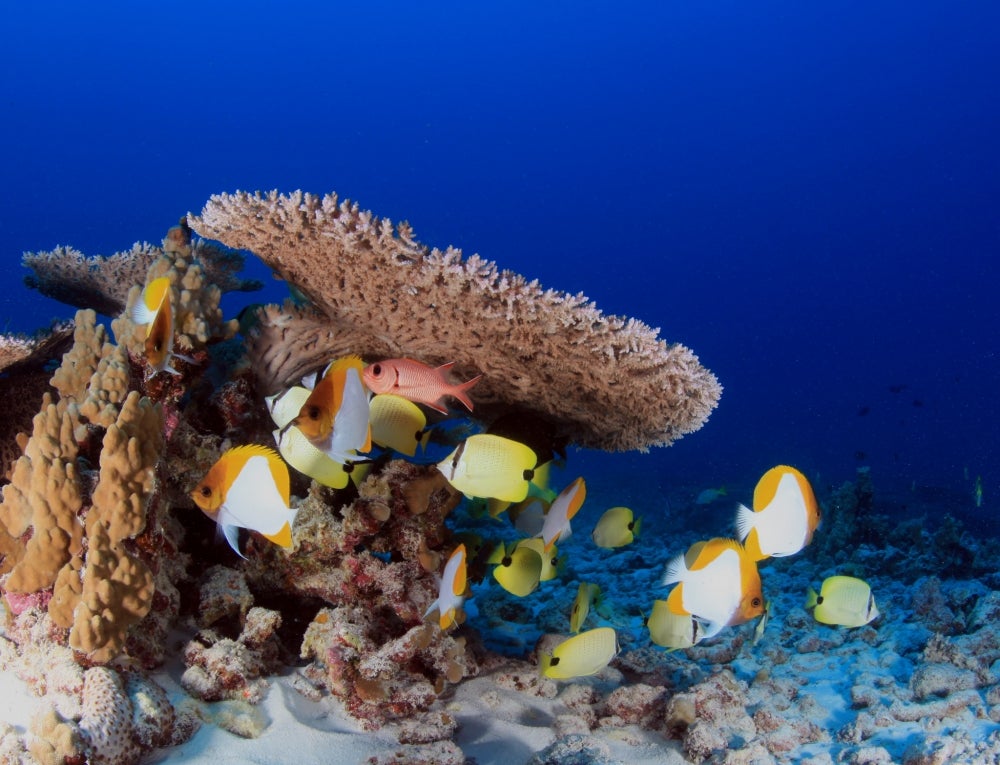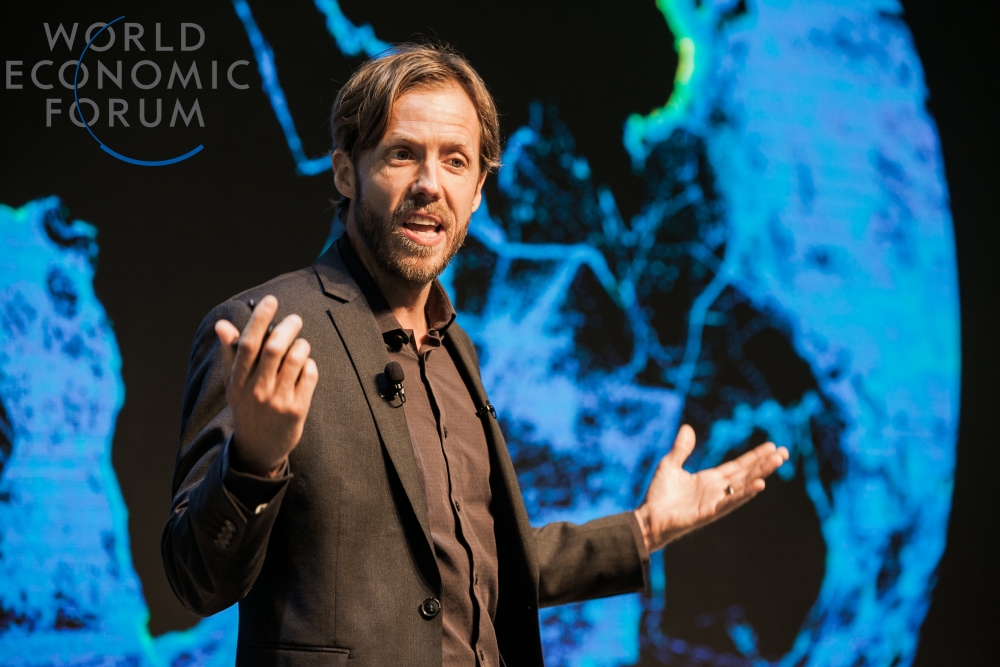
Our Oceans, Our Futures

Making up 90 percent of the inhabitable space on our planet and providing half of the world’s oxygen, oceans play an irreplaceable role in global health, in every sense of the word. Add to that the worth of oceans as a global asset — estimated at $24 trillion — and the need to protect the health of the oceans themselves comes into sharp focus.
Boosting ocean health is exactly what UC Santa Barbara aims to do through a new partnership with the World Economic Forum (WEF), a community of business, political and societal leaders working to improve the state of the world. By teaming with the Forum, UCSB’s Marine Science Institute (MSI) will link its renowned ocean scientists with the global leaders who can help translate their research into action.
WEF has previously advanced similar initiatives — and created similar coalitions — to drive change on other critical global issues, including water. The Forum in 2016 identified oceans as a new focus and sought out experts to lead the initiative. UCSB was selected for its historical, global leadership in marine science.
‘A Top Priority’
“This is an extremely exciting opportunity for UC Santa Barbara,” said Mark Brzezinski, director of MSI, an internationally distinguished center for interdisciplinary ocean research on everything from the feeding habits of sharks and the travels of manta rays, to marine chemistry and climate change impacts. “The ocean’s future is our future. We will need the best ideas from science, government and the private sector to promote healthy oceans so that they continue to sustain humanity for generations to come.”
With new funding from Lynne and Marc Benioff, the innovative collaboration will put MSI scientists to work directly with the WEF on its own “New Vision for the Ocean Initiative.” At UCSB, the partnership will be hosted by the Benioff Ocean Initiative, an applied program, also within MSI, using science to improve ocean health. That effort launched in 2016 with a $10 million gift to the campus from the Benioffs.
“The health of our oceans is critical to the fate of our planet, and should be a top priority for all business and world leaders,” said Marc Benioff, the chairman and CEO of Salesforce. “Building coalitions like this — among leaders in science, business, society and government — will be critical as we fight for the future of our oceans.”
A Global Agenda
As part of these new efforts, UCSB also is co-curating the WEF’s Transformation Map of the Oceans, among the Forum’s intelligence resources designed to foster more informed global decision making.
“Through this new partnership with the World Economic Forum, scientists at UC Santa Barbara that are setting the global agenda for ocean research will also now play a role in setting the global agenda for ocean change,” remarked Douglas McCauley, director of the Benioff Ocean Initiative and an assistant professor in UCSB’s Department of Ecology, Evolution, and Marine Biology.
Currently in Davos for the Forum’s annual meeting, McCauley gave one of the event’s “BetaZone” presentations, akin to a TED Talk, delivering results from his research on marine extinction risk and addressing “how keeping the oceans healthy affects us — our health, our economies and our wellbeing.” Today he joined a panel of ocean experts to discuss how companies, governments and technology can help protect our oceans.
“I am incredibly proud of Douglas McCauley for his continued leadership in the area of ocean health,” said Pierre Wiltzius, the Susan & Bruce Worster Dean of Science and executive dean of the College of Letters and Science at UCSB. “This is a topic of vital importance for the future of our marine environments, and Douglas has been a tireless advocate for the cause. With this new partnership, he will be able to not only bring these issues to the attention of world leaders, but to positively impact the entire world.”
‘Products for Change’
“Outputs from the broader conversation about oceans at Davos will be used to create the same kind of activation energy for ocean change that the Forum has fostered on other critical environmental initiatives,” McCauley explained. “The goal is to use the Davos meeting to frame the importance of oceans, solidify partners and kickstart the oceans initiative. The next milestone will be creating and sharing real products for change at the United Nations Ocean Conference this June in New York.”
The UN meeting is a gathering of world leaders that will address meeting sustainable development goals for ocean ecosystems.
“We need to redouble our collective effort to manage the crisis we face from ocean degradation and illegal fishing,” said Dominic Waughray, Head of Public-Private Partnership and Member of the Executive Committee, World Economic Forum. “This partnership will harness the potential of public-private cooperation and the fourth industrial revolution to help the international community meet the ocean Sustainable Development Goal.”



